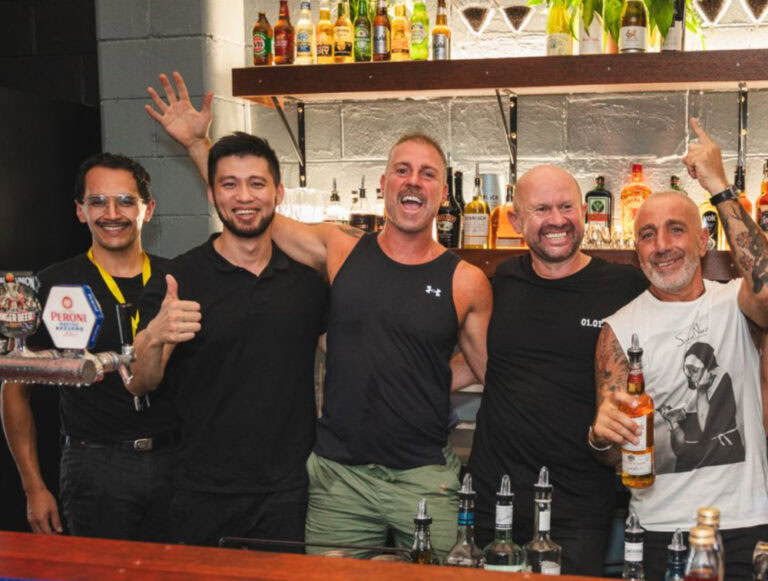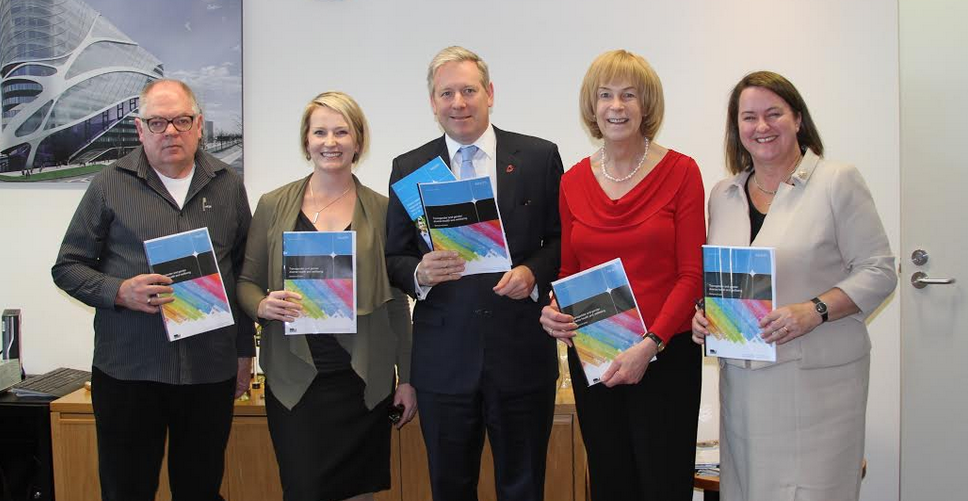
Community divided over Victorian Government’s LGBTI health achievements

TWO documents released last Friday mark the end of a controversial term for the Victorian Government’s Ministerial Advisory Committee (MAC) on LGBTI Health and Wellbeing, disbanding as the government prepares for next month’s state election.
An LGBTI Health and Wellbeing Action Plan from the Health Department and a background paper on trans* and gender-diverse issues were released to praise from the community representatives who make up the MAC.
Despite the praise the MAC has faced criticism since its inception, including from a number of its own members.
The MAC’s shortened term of operation is one example. The government took a commitment on creating the MAC to the 2010 election — it had been in operation under the previous Labor government — but did not establish the committee until March 2013, over two years after forming government.
The committee advises Mental Health Minister Mary Wooldridge and Health Minister David Davis, who addressed criticisms of the MAC’s truncated term of existence.
Davis told the Star Observer a re-elected Coalition Government would be “very swift” in establishing a new committee, but stopped short of providing a timeframe.
“It’s the government’s intention that if re-elected there will be a similar ministerial advisory committee,” Davis said.
“We will be very swift in re-convening a ministerial advisory committee that will draw heavily on the work before.”
A report listing recommendations for future work is a key outcome of the MAC, and these recommendations informed the action plan released last week. While significant as a major piece of work for the government to draw on, as a communication from the MAC to the ministers the recommendations are confidential.
Current MAC chair Mike Kennedy told the Star Observer that due to confidentiality he was unable to access the recommendations produced by the previous MAC under the former Labor government.
“When this MAC started and we said, can we have a look at the recommendations of the last MAC, the answer was no,” he said.
Pending the outcome of next month’s election, the same situation could occur if the next MAC is established under a Labor government.
The Star Observer has obtained a draft of the document listing over 100 recommendations across all sectors of the community. Highlights include increasing direct funding of community-led advocacy organisations, increasing access to services outside metropolitan Melbourne, and the introduction of “rapid mental health screens” for people accessing HIV and other STI testing.
The action plan released last week incorporates some of the recommendations made by the MAC, but primarily serves as a high-level strategic document for the government on LGBTI health and wellbeing.
Most items under the heading “Implementing the Action Plan” are broad goals, but specific actions include ongoing support for Gay and Lesbian Health Victoria’s Rainbow Tick service accreditation scheme and for Beyondblue’s research into LGBTI mental health.
Although the recommendations’ confidentiality means one of the MAC’s key concrete outcomes is unavailable to the public, Kennedy argued the MAC was still valuable as an ongoing channel of communication between the government and the LGBTI community.
“What’s happened is, as we’ve identified things as we’ve gone along, we’ve been communicating those to the ministers, who are very happy to meet with us,” he said.
He gave the example of plans to incorporate testing for other STIs at rapid HIV testing sites as something arising out of conversations between the ministers and members of the MAC.
Mental health activist Rob Mitchell was appointed to the MAC when it was formed, but he was fired in March this year following ongoing public criticism of the committee’s relevance.
Mitchell said he had grown frustrated with what he saw as the MAC’s inaction on bullying of LGBTI students, and set up a meeting with representatives from the Health and Education departments to discuss expanding the Safe Schools Coalition to address the problem.
When the MAC’s deputy chair Associate Professor Ruth McNair cancelled the meeting, Mitchell allegedly threatened to put McNair’s face on a bumper sticker stating she was undermining youth wellbeing. The incident led to Mitchell’s dismissal.
Mitchell told the Star Observer the MAC was little more than “pinkwashing”— an exercise only in boosting the government’s credentials to the LGBTI community.
“It’s not a write-off as far as David Davis is concerned or Clem Newton-Brown is concerned, because they’ve got the glossy photos and they’ve got enough people in the photos from within the community so they can then bullshit us to say that they’re doing something,” he argued.
“Anybody that suggests that it’s a worthwhile endeavour to keep giving advice when it’s not taken by government, number one, but number two, to then become part of a system that is oppressive, that causes demonstrable amounts of ill health inside the community that it is purporting to protect and nourish — (it) is a fantasy.”
Criticisms of the MAC have also come from intersex activists, with MAC member and OII Australia vice-president Tony Briffa arguing intersex issues were largely neglected within the newly-published action plan. Briffa, the only intersex person appointed, said the MAC was inadequately resourced to address intersex issues.
“The MAC had planned on developing a paper on intersex health, but only managed to resource a paper for the trans* and gender diverse community,” Briffa told the Star Observer.
“Intersex people were again thrown under a bus by the Victorian government and the Victorian Department of Health.”
Mike Kennedy and others addressed the lack of intersex outcomes from the MAC at last week’s launch, saying the working group that produced the trans* and gender-diverse background paper was originally supposed to look at intersex issues, but ran out of time.
Briffa said that intersex Victorians would have to look to the next iteration of the MAC to have the “many significant human rights issues” they face to be addressed.
(Main image: L-R: Mike Kennedy (MAC chair); a Health Department representative; Health Minister David Davis; Brenda Appleton (MAC trans* and intersex working group chair) and Mental Health Minister Mary Wooldridge)










I like what you guys are up too. Such clever
work and reporting! Keep up the superb works
guys I’ve you guyus to mmy own
blogroll.